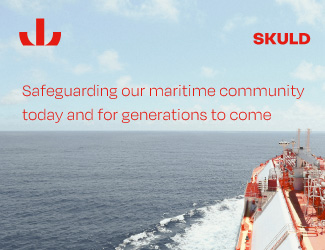Seasonal demand and a backlog of business from earlier this year have set freights and vessel earnings in the European[ds_preview] short sea sector on an upward trajectory. However, with the Brexit upon us and forward booking levels muted, the outlook for 2021 remains uncertain, says Mark Harrison, co-founder and chartering director of UK shipbroker H.C. Shipping & Chartering.
The short sea market has finally picked up. Is it the peak already?
Mark Harrison: The short sea market is quite cyclical. Historically the annual peak consistently falls around the second half of November/first half of December, so in theory there is a limited window for further advancement at this point. Irrespective of Covid-19 and Brexit, the Christmas and New Year holidays always create something of a hiatus and a loss of momentum after which it’s usually unclear exactly how the market will re-set in January. That’s obviously even more relevant in 2020, and there’s an argument that the aforementioned factors may already be driving a final push after which a slowdown towards the holidays could begin earlier than usual.
A seasonal rally was not necessarily to be expected in the »corona« year. What kind of cargoes/trades are driving the recovery?
Harrison: A recovery was by no means assured and the extent has certainly been encouraging but still needs to be viewed in the context of the year as a whole. It’s difficult to identify specific drivers but we have seen an increase in recyclables/renewables as well as raw materials for the construction sector, including steels. Additionally, grains/feedstuffs have also picked up significantly. Rather than one specific driver it’s arguably a combination of the lockdown backlog and gradually learning to work with and around the restrictions imposed by the pandemic.
Brexit is approaching fast now. How will it impact the short sea trade?
Harrison: The burning question! The short answer is: nobody knows. This is an untested scenario and even now we still don’t know what form it will take. Deal or no deal? If there is a deal, what will the parameters be? How can anyone realistically assess an impact on that basis? Undoubtedly there will be disruption to UK import/export and winners and losers on both sides, but ultimately the need and the desire to trade should prevail. Charterers and owners are resourceful and hopefully the importance of finding solutions will override the difficulties and the politics. Q1 and Q2 could be bumpy but some stability should follow eventually.
What are the perspectives for 2021?
Harrison: In current circumstances the obvious answer would be uncertain. 2020 has been (and continues to be) uniquely challenging for everyone and it’s unlikely the »normal« we once knew will ever return. This has had a huge impact on sentiment and expectations for the future which is reflected in forward bookings for 2021 many of which are at levels no higher than 2020 but also many of which are down by anywhere from 5-10%. We appear to be in a transitional phase of consolidation rather than progression but, with positive news on workable vaccines and some experience under our belts, perhaps cautiously optimistic could also be the answer.















